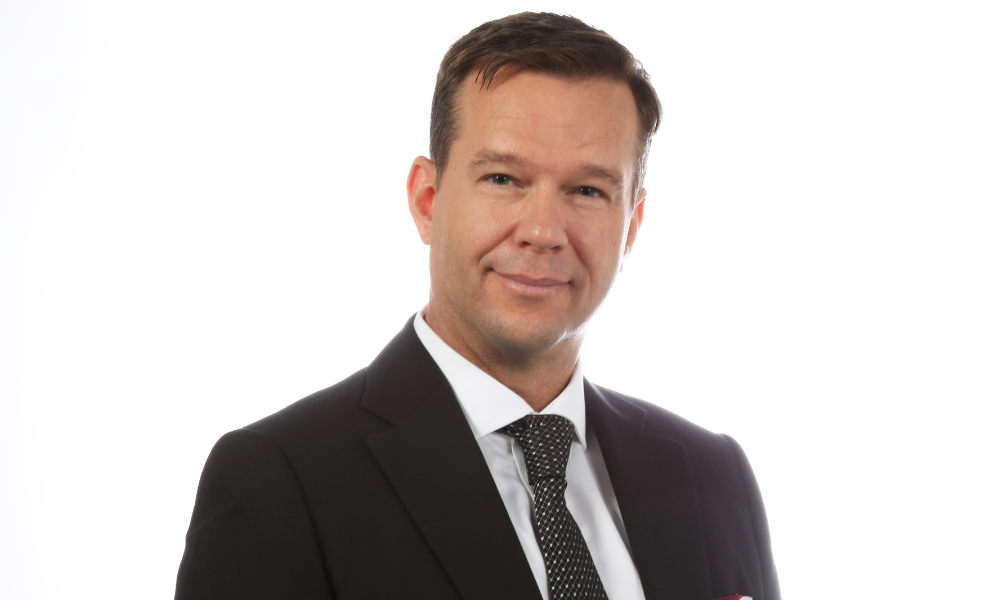Newly appointed chief to take up role in February

Nick Hakes (pictured), newly appointed CEO of Financial Advice New Zealand, reflects on progress made but emphasises the need for further reform in the mortgage advisory space.
Relocating from Singapore back to Aotearoa New Zealand over the summer has provided me with an opportunity to reflect on over 20 years working with professional financial adviser bodies across Asia-Pacific. The progress we have made as an emerging profession is undeniable, yet still there is much more work to do to place seeking quality financial advice at the forefront of consumers’ decision-making process when it comes to making important financial decisions.
Financial advisers have a unique perspective on society, as no other professional has access to the financial and health well-being of an individual and their family. That perspective and relationship is a privileged position.
A common theme across many markets in the region, is that the environment in which practitioners operate is increasingly challenging. A potent mix of forces is driving change and impacting advice models - the rise of direct-to-consumer fintech solutions, increased regulation and compliance, downward pressure on traditional revenue streams, and the need to evolve business models, are all underpinned by one undeniable and common element – a shift in consumer expectations and standards.
Consumers are demanding more transparency, and through technology becoming cognisant to organisations who say one thing, but then do another.
An implication of the decades-long reform has been layer, upon layer of complexity being added to already complex financial systems. Many industry leaders are now calling for simplicity in the laws and compliance requirements. The most recent example in New Zealand, Minister Bayly has outlined his priorities for the twin peaks regulatory model to be simplified and streamlining of licencing for institutions.
Upon reflection our industry has always been better to start the process of change from a point of opportunity, and not from a point of pain such as regulatory and government pressure.
Perhaps the greatest learning from financial advisory markets is that industry-led reform through considered collaboration of stakeholders towards self-regulation is preferable to statutory regulation.
The critical role of professional adviser bodies
Professional adviser-representative bodies can play a powerful role as advocates for practitioners and representing the voice of the profession. Yet to be credible to the consumer, and therefore relevant to Government, professional bodies and their members must first ensure that they earn and retain a ‘social license’ to operate.
A social license to operate is defined by the Ethics Centre as “the informal acceptance granted to an individual or organisation by a local community”.
Governments and regulators in ASEAN countries are sharing information and watching carefully how developed economies such as New Zealand, Singapore and Australia are managing the professionalisation of the financial services sector; and where financial services has lost its social license, then the experience has been that the Government intervenes with blunt force through regulation and law thus imposing a political solution.
The success of any adviser-led association is its relevance to its members and Financial Advice New Zealand has a proud heritage of engagement and collaboration that dates to the adviser-representative associations of the PAA, IFA, and NZFAA. From inception, the cultural DNA of Financial Advice New Zealand has been built upon the combined legacy of these three founding adviser bodies and the willingness of its members to share their knowledge and experiences with each other.
As practitioners, financial advisers have always been the best source of knowledge. Practitioners constantly solve problems, refine their skills, and learn from their mistakes. They receive feedback directly from client conversations. Advisers have a unique perspective on the operation of the financial advice profession.
Adviser-representative bodies go beyond being the voice of advisers and offer high-value, peer-to-peer shared learning opportunities for members to share their ideas on how they solve business and client problems.
Culture of learning
The investment in higher education by advisers in markets across Asia has been vital to increasing consumer confidence in financial advice. Most advisers want to understand how higher education standards will affect them - and rightly so: the decision to invest in education needs to be treated with empathy and respect.
Demand from both consumers and employers for more highly skilled advisers will drive the need for practitioners to upskill in both formal and informal education. The emphasis demanded by consumers will be that their advisers understand why they do what they do, not just how. Consumers also demand that there is an alignment of theirs and their adviser’s needs, and ultimately that the adviser will prioritise the best interests of the client over their own. That is the central tenet of trust.
As we live through the greatest generational transfer of wealth over the coming years, financial advisers are well placed to play an active role in this demographic shift. There has never been a better environment for adviser-led originality, intellectual curiosity, and new insights for changing the provision of life-changing financial advice.
As we look to the future to grow the demand for quality financial advice, I look forward to meeting, listening, and engaging with our members and the broader advice community at our THRIVE conference in March.
Read about Nick Hakes’ appointment here.



